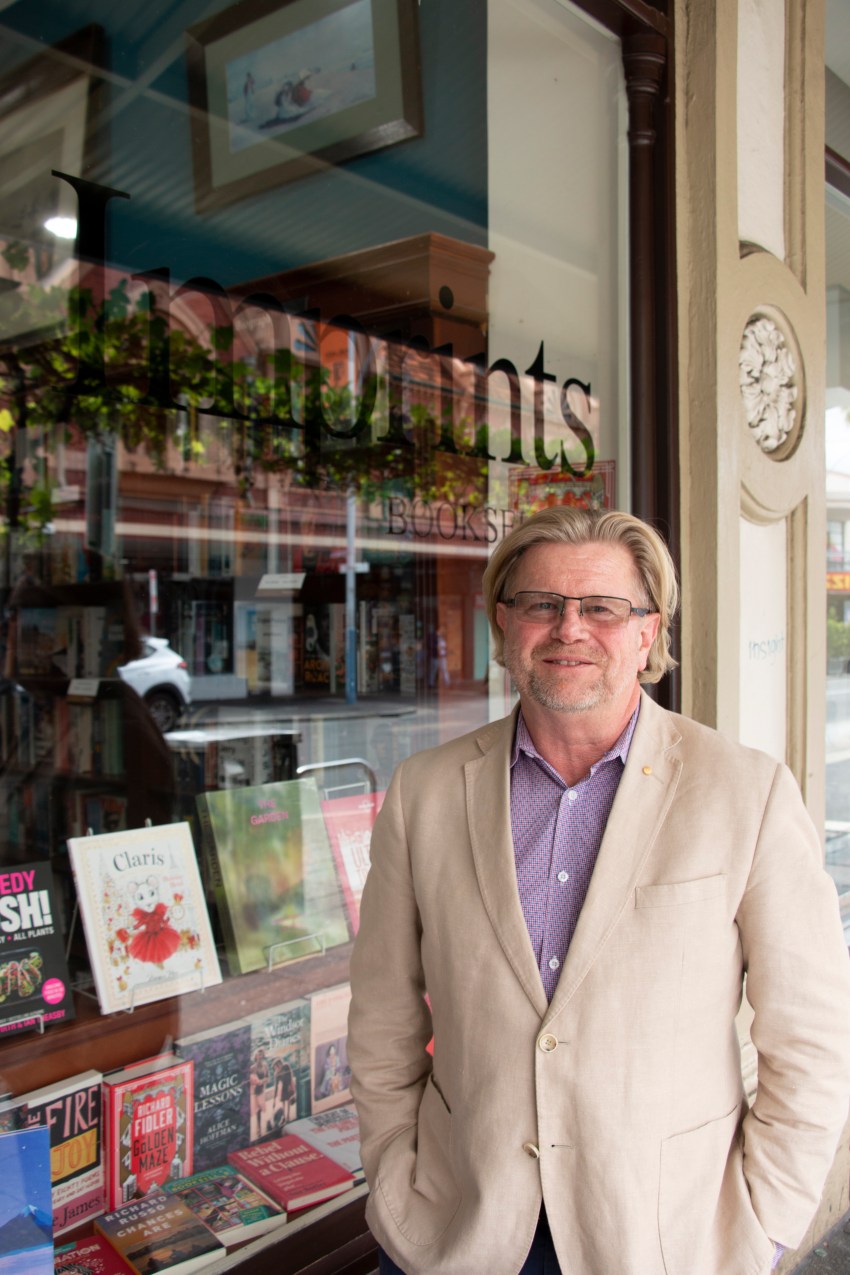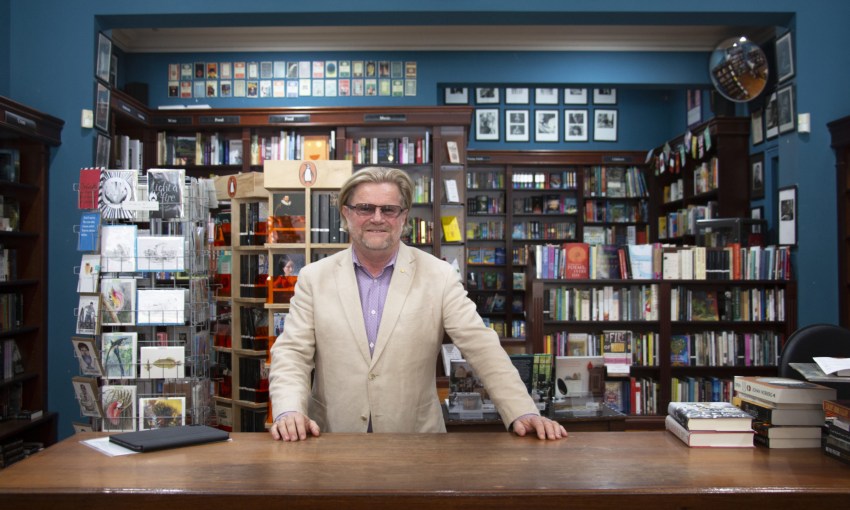This is not Greg Mackie’s first go at the Adelaide City Council. After an almost two-decade Town Hall hiatus, the councillor jumped back into the saddle last year. He speaks with CityMag about how he’s tackling the responsibility the second time around.
Know your city council: The return of Greg Mackie
You could characterise Adelaide City councillor Greg Mackie’s first couple of months in Town Hall as quiet.
Reflecting on last year, he admits this.
“I exercised careful judgement,” Greg clarifies, speaking from within his Town Hall office, which he’s occupied since being elected in the central ward by-election last May.
CityMag has got to know a handful of other Adelaide City councillors.
Read our chats with Franz Knoll, Robert Simms, Mary Couros, Anne Moran, Simon Hou and Jessy Khera.
Instead of pitching lofty motions for the things he’s passionate about (which the SA History Trust CEO says are arts and culture, urban planning, and reviving the postcode 5000’s West End precincts), he instead voted carefully and in a less “[factional], reactive way”.
“Timing, they say, is everything in showbiz and politics,” Greg says.
The Adelaide City councillor, whose LinkedIn boasts working in senior government positions, from executive director of SA Health’s Office for the Ageing to executive director of Arts SA, took a detour from this strategically measured route most noticeably in March this year.
Spurred on by the recent national events around Australia and Parliament House, Greg moved an investigation into the prevalence of sexual harassment and assault at Town Hall.
He was also part of the heated Big Santa debacle in May, which split elected members down factional lines.
Greg wanted Big Santa – an artefact which costs the City of Adelaide tens of thousands of dollars in storage fees – to be restored, revived and displayed as part of this year’s Christmas festivities.
But Team Adelaide factional leader Alexander Hyde amended the proposal, with majority members voting to ditch Big Santa and give it to the SA History Trust.
On whether the council is divided, Greg says there is “certainly an affinity between a group of elected members who vote similarly”.
This “division” is one of the reasons he felt compelled to participate at Town Hall last year, he says.
“It’s not, in recent times, been the happiest of places,” Greg explains.
“My experience of council 20 years ago was that while it’s possible to have disagreements – and in some cases strong disagreements – about direction, and policy, and maybe even levels of personal animus toward other individuals, that there was a level of civility that was observed more in the deed than in the breach.
“And while there were some very stark differences of approach, and differences of personality, amongst those eight elected members and the Lord Mayor, we always managed to be respectful and civil.
“There were some factors that contributed to that, that I think are less evident right now. One of those factors is the level of experience of elected members.”
— Greg Mackie

We ask whether he means his younger colleagues are not as qualified as the more senior, veteran councillors, to which he replies, “experience is the greatest teacher and comes as a function of time”.
Experience, though, comes with its own issues.
As CEO of SA’s History Trust, which champions cultural heritage through the Migration Museum, Maritime Museum, the National Motor Museum, Centre of Democracy, and History Festival, Greg has a lot on his plate.
He’s contracted to work nine days a fortnight within this role, and says he dedicates an estimated 15 hours a week to council work, which includes meetings.
Time is clearly a restraint, and Greg admits it’s his biggest weakness as a city councillor.
“The more time one can spend in the minutiae of our governments, the better the decision-making can be,” he says.
Another political bugbear for the central ward councillor is how “addicted” the City of Adelaide is to generating revenue from car parking and fines, he says.
“On the one hand we aspire to be a carbon-neutral city, and on the other hand we are, from an income-generating perspective, completely addicted to the automobile coming in and sitting in car parking stations,” he says.
This attitude, however, did not convince Greg to vote in favour of the long-proposed east-west bikeway.
Greg also says his experience as a founder of Hindley Street indie bookstore Imprints Booksellers informs his approach to his part-time political career.
Not only has he worked on the ground level with other small business owners in the Adelaide CBD, but retail doesn’t stop for anyone – and neither does Town Hall.
“The customer doesn’t wait. You have to be there; you have to give attention; you have to understand the nature of the engagement. That same principle applies with local government,” he says.
Greg’s previous Adelaide City Council career lasted only one term (three years) after a failed attempt to win the hotly contested Lord Mayor seat.
“There’s no second prizes or fall-back options,” he says.
Looking ahead, he wants to prioritise Adelaide as a “collections capital”.
This doesn’t necessarily mean having the largest collections of art and artefacts, but rather that we become the “Great Little Collections capital of the world”.
He also hopes for Adelaide to be a place that allows people to live and thrive.
“My policy and service priorities are to ensure that the capital city community of residents, visitors and businesses are getting the best leverage for our cultural economy,” he says.
“This is broader than just the arts – it is entertainment, it is food and beverage, it is [a] spiritual celebration, it is tourism, it is education and our magnificent public collections. It is festivals and sport and major events.
“We have not had a new City of Adelaide plan for over 27 years. This must change if we are to be a greener place where design matters.
“World Heritage-listed Green City in a park is definitely what I want to see happen.”




